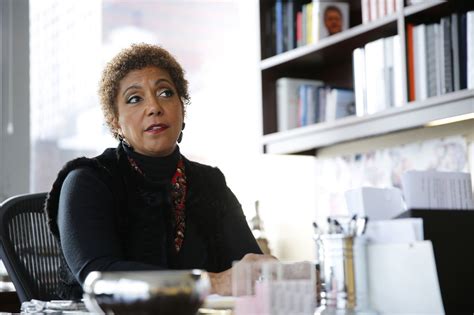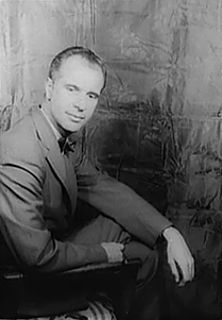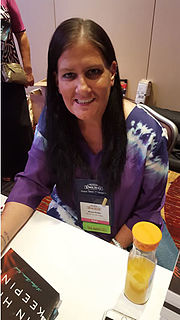A Quote by Linda Johnson Rice
We kept everything: every major event that's happened to African-Americans since 1945, with 'Ebony' as a repository for all those photographs and as a voice for all that happened.
Quote Topics
Related Quotes
That happens to a lot of couples. I understand the black history in this country, and regret it, I wish it hadn't happened. See, I also know that it hasn't happened to African-Americans alive today. There isn't one African-American alive today who's treated as three-fifths of a person like it was in the past.
We forget the conditions - not only in slavery - but after slavery, when there was this purposeful locking out of African Americans from economic opportunity. Or we forget today's incarceration rates, and educational and housing discrimination; all of these things. We pretend that everything that has happened happened long ago, and then we act as if we all now just treat each other equally, everything will be fine.
To be silent. In hopes of not offending, in hopes of being accepted. But what happened to people who never spoke, never raised their voices? Kept everything inside? Gamache knew what happened. Everything they swallowed, every word, thought, feeling rattled around inside, hollowing the person out. And into that chasm they stuffed their words, their rage.
Love happened. She would have never thought that it could happen so rapidly. Love was something you worked at, and she had no doubt their relationship would take a lot of hard work and dedication. But it had simply happened. No explanation. No cataclysmic event or earth-shattering revelation brought on by some external event. It had simply happened.
They would grow up grappling with ways of living with what happened. They would try to tell themselves that in terms of geological time it was an insignificant event. Just a blink of the Earth Woman's eye. That Worse Things had happened. That Worse Things kept happening. But they would find no comfort in the thought.
One of the problems with episodic television of any color is that everything has got to be okay at the end of the episode so it can start again next week. So the events that occur are rarely life-changing. But with film, you can say that this thing only happened once; this is a major thing that happened to these people.
Let's say that history is what happened. The record of what happened is how each individual happens to see those events. They've already been ?ltered. When the historian or biographer takes over, history is no longer exactly what happened, because there has been a process of selection going on; it's impossible to write about anyone, any event, in any period of time, without in some way imposing, even unconsciously, your own standards, your own values.
We recriminalized black life. Incarceration rates since the 1908s have gone through the roof, overwhelmingly black males, women and Hispanics to some extent. Essentially re-doing what happened under Reconstruction. That's the history of African Americans - so how can any one say there's no problem. Sure, racism is serious, but it's worse than that.


































